
Fantails are small insectivorous songbirds of the genus Rhipidura in the family Rhipiduridae, native to Australasia, Southeast Asia and the Indian subcontinent. Most of the species are about 15 to 18 cm long, specialist aerial feeders, and named as "fantails", but the Australian willie wagtail is a little larger, and, though still an expert hunter of insects on the wing, concentrates equally on terrestrial prey.

The white-browed fantail is a small passerine bird belonging to the family Rhipiduridae.

The Pohnpei fantail is a fantail, known as Likepsir in Pohnpeian, which is endemic to the Pacific island of Pohnpei in the Federated States of Micronesia. It is a bird commonly found in forests and at forest edges. It feeds on insects which it gathers by gleaning amongst foliage or by making short dashes while in the air.

The blue-headed fantail is a fantail endemic to the northern Philippines where it is found on the islands of Luzon and Catanduanes. Until recently, it was considered conspecific with the Tablas fantail and Visayan fantail.
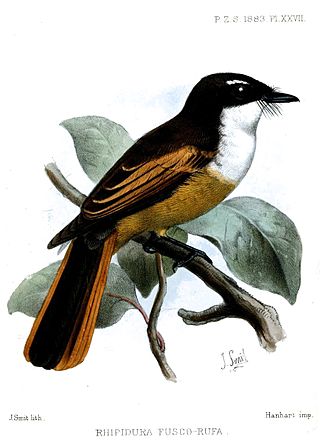
The cinnamon-tailed fantail is a fantail restricted to the Banda Sea Islands of Indonesia.

The Mussau fantail or Matthias fantail, is a fantail which is endemic to Mussau Island in the St. Matthias Islands of Papua New Guinea.

The streak-breasted fantail is a species of bird in the family Rhipiduridae. It is endemic to Indonesia, where it occurs in Seram Island. Its natural habitats are subtropical or tropical moist lowland forests and subtropical or tropical moist montane forests.

The Malaysian pied fantail is a species of bird in the fantail family and one of 47 species in the genus Rhipidura. It is locally referred to as murai gila, literally "crazy thrush" in the Malay language. It is found in Brunei, Cambodia, Indonesia, Laos, Malaysia, Myanmar, Philippines, Singapore, Thailand, and Vietnam. Its natural habitat is subtropical or tropical moist lowland forests.

The Palau fantail is a species of bird in the fantail family Rhipiduridae. It is endemic to Palau.

The white-bellied thicket fantail is a species of bird in the family Rhipiduridae. This species is one of 47 in the genus Rhipidura. It is found in New Guinea. Its natural habitats are subtropical or tropical moist lowland forests and subtropical or tropical mangrove forests.

The black thicket fantail is a species of bird in the family Rhipiduridae. It is found in the Aru Islands and New Guinea. This species is one of 47 in the genus Rhipidura.

The Samoan fantail is a species of bird in the family Rhipiduridae. It is endemic to Samoa and is found in Upolu and Savaiʻi islands.

The Kadavu fantail is a species of bird in the fantail family Rhipiduridae. It is endemic to Kadavu and Ono in the Kadavu archipelago, in southern Fiji. It is closely related to the streaked fantail of the rest of Fiji, and forms a superspecies with the numerous island species of fantail ranging from the Solomon Islands to Samoa.
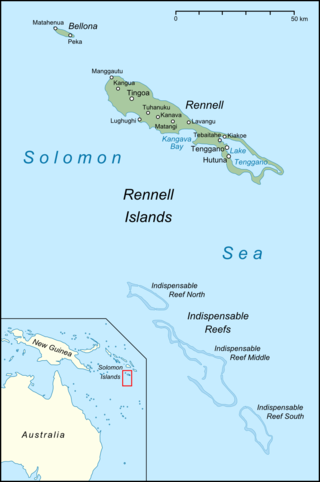
The Rennell fantail is a species of bird in the family Rhipiduridae. It is endemic to Rennell Island.
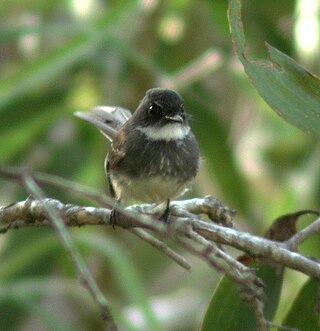
The northern fantail is a species of bird in the family Rhipiduridae. It is found in New Guinea and northern Australia . Its natural habitats are subtropical or tropical moist lowland forests and subtropical or tropical mangrove forests. The Biak fantail was formerly considered a subspecies.

The Mindanao blue fantail is a species of bird in the family Rhipiduridae. It is one of 47 species in the genus Rhipidura.
The Makira fantail or dusky fantail is a species of bird in the family Rhipiduridae. It is endemic to the Solomon Islands.
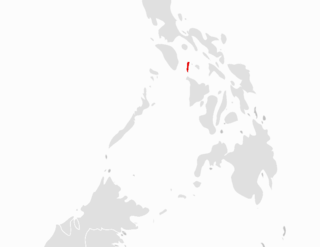
The Tablas fantail is a fantail endemic to the Philippines on Tablas Island. Until recently, it was considered conspecific with the blue-headed fantail and Visayan fantail. It is threatened by habitat loss.
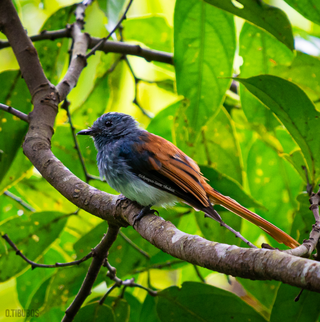
The Visayan fantail is a fantail endemic to the Philippines on islands of Negros, Panay, Guimaras, Masbate and Ticao. Until recently, it was considered conspecific with the blue-headed fantail and Tablas fantail.
The Malaita owl, also known as the Malaita boobook, is a small to medium-sized owl. It is endemic to Malaita. It was formerly considered a subspecies of the Solomons boobook.



















